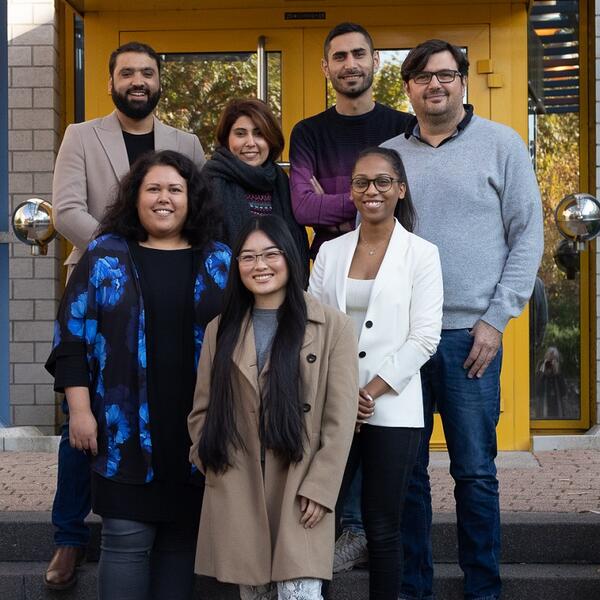alvivi ist das Info-Portal für Flüchtlinge, Migranten und Helfer.

Your rights in Germany
Germany is one of the few countries in which the right to asylum is established in the constitution (Article 16a GG). It is the only fundamental right that only foreigners are entitled to. However, it was severely restricted by the so-called asylum compromise of 1993. The Integration Media Service (Mediendienst Integration) provides an overview of the current legal situation on its website in German.
The UNHCR (United Nations High Commissioner for Refugees) in Germany has published the following summary on "Rights and Duties after Recognition":
http://www.unhcr.org/dach/de/was-wir-tun/asyl-in-deutschland/rechte-nach-der-anerkennung (in German)
Living
Recognised refugees and persons entitled to asylum as well as persons granted subsidiary protection may move into a suitable apartment if they have found one. Moving to another federal state is not permitted within the first three years. This obligation is called a residence requirement (Wohnsitzauflage). During this period, a move is only possible if one of the exceptions provided for by law applies. The Foreigners' Registration Office (Ausländerbehörde) can permit a move if the person entitled to protection or his/her spouse has found a job or a place to study in another federal state. However, this only applies if the job has a certain scope and fulfils certain criteria. In addition, a certain place of residence can be assigned in order to ensure the provision of adequate housing or to promote sustainable integration.
The residence requirement should not be confused with the spatial restriction that applies at the beginning of the asylum procedure. After their recognition, persons entitled to protection can move freely in Germany and, for example, visit relatives or friends in another city.
Travel
Refugees and persons entitled to asylum can apply for a refugee travel document with the German authorities. They cannot be asked to contact the diplomatic missions of their home country. The passport replacement is recognised by all countries that have signed the Geneva Refugee Convention. Travel abroad is possible under the general entry and visa regulations.
Subsidiary beneficiaries of protection are not entitled to a refugee passport. If it is not possible or reasonable for you to obtain a passport from the diplomatic mission of your home country, you can obtain a travel document for foreigners.
Persons entitled to protection who travel to their country of origin are threatened with the loss of their residence permit. The Federal Office grants refugee recognition or subsidiary protection in order to protect the person concerned from persecution or serious damage in the country of origin. In the event of a return, the German authorities may initiate a revocation procedure. There is a risk that the residence permit will be revoked.
Medical care
After being recognised as a refugee or granted subsidiary protection, beneficiaries of protection are entitled to health insurance. This care corresponds to the same support that German nationals receive under a statutory health insurance scheme. The costs of statutory health insurance are financed by the social authorities as long as the persons concerned do not have their own income.
Social benefits
Refugees, asylum seekers and beneficiaries of subsidiary protection who cannot provide for themselves receive financial assistance from the state. This enables them to cover basic daily needs such as housing and utilities. The amount of the benefits corresponds to the level of Germans in need. The Job Centre is responsible for granting the benefits.
Education and schools
All children and adolescents have the right to attend school in Germany. This right to education is firmly anchored in the UN Convention on the Rights of the Child and in the European refugee law. As a rule, children are required to attend school from the age of 6 for nine years (ten in some federal states). In principle, this also applies during the asylum procedure and after recognition.
At some schools, so-called preparation or welcome classes first teach the basics of the German language before the children take part in regular classes.
Learning German
In Germany a standardized integration course exists to give foreigners the opportunity to learn German as quickly as possible, to find their way around and to develop an understanding of the country. The course consists of 900 lessons and includes a language course as well as a section on the German legal system, values, culture and history. The language course concludes with language level B1. Asylum seekers, refugees and beneficiaries of subsidiary protection are entitled to take part in an integration course. This also applies to persons who have entered Germany via a federal humanitarian admission programme or via a resettlement procedure. Those who have entered Germany via a state admission programme or for whom a national ban on deportation has been established can only participate if seats are available.
An application to the Federal Office for Migration and Refugees (BAMF) is required in order to participate. Persons who receive services from the job centre can be exempted from the costs of the course.
Work and training
Recognised refugees, persons entitled to asylum and persons granted subsidiary protection receive a residence permit which allows them to work without restrictions. A permit from the Foreigners' Office is not required. If the BAMF has only established a national prohibition of deportation, the permission of the Foreigners' Office is still required to take up concrete work.
Recognised refugees, persons entitled to asylum and persons granted subsidiary protection can start vocational training or schooling at any time without the permission of the Foreigners' Office.
Study
Basically, all people in Germany are allowed to study - regardless of their residence status. As a rule, in order to be able to take up a course of study, proof must be provided of a previous specialist education and corresponding language skills. There is a special recognition procedure for the recognition of foreign qualifications, which can be carried out on application at the responsible recognition office
Source: UNHCR



